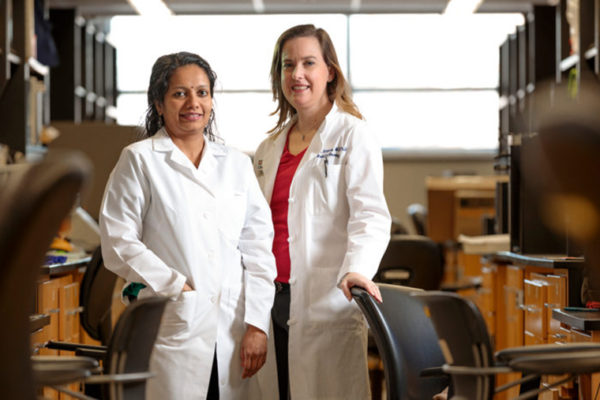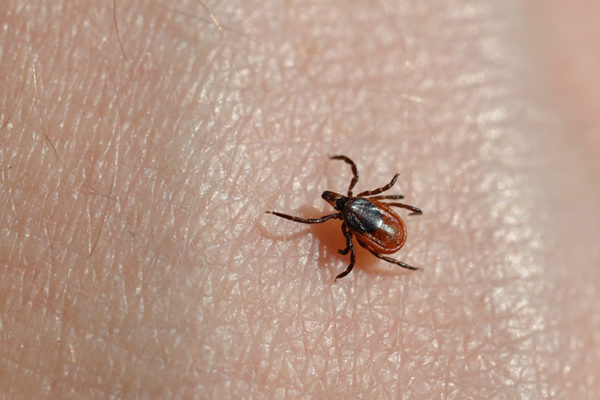African-Americans in science poster series on display
A series of posters highlighting notable African-Americans in science and technology is on display in the Farrell Learning and Teaching Center (FLTC) Atrium on the Washington University Medical Campus through Feb. 28. The traveling poster series then can be seen in Seigle Hall on the Danforth Campus from March 5-29; and again at the FLTC Atrium from Aug. 1-31.
Merrifield to appear at SXSW EDU
Leah Merrifield, associate vice chancellor for community engagement and St. Louis college readiness initiatives at Washington University in St. Louis, has been selected to serve as a mentor at the SXSW EDU Conference & Festival March 5-8 in Austin, Texas. The event is devoted to advancing teaching and learning.
Cutting off cervical cancer’s fuel supply stymies tumors
Through research in mice, School of Medicine scientists have exploited cancer cell metabolism to kill cervical tumors that are resistant to standard chemotherapy and radiation.
Race, insurance status linked to job loss after breast cancer
Not only were an African-American patient or an uninsured patient four times more likely to leave the workforce despite fighting a cancer with high survival rates, but they also were more likely to return in a lesser job within the first two years cancer-free.
WashU Expert: Supreme Court to decide if lawyer can override client’s wishes
The U.S. Supreme Court will decide this term whether a defense lawyer may admit a client’s guilt against the client’s wishes, and it is unlikely that the court will rule against the client, said a criminal law expert at Washington University in St. Louis.
Turning ideas into action
Washington University is taking another important step toward the goal of a more diverse, inclusive and welcoming community with the release of the Commission on Diversity & Inclusion’s report. The report provides a roadmap to turn ideas into action.
Happy Valentine’s Day, Washington University
Love is in the air … and the lab … and the lecture hall. In celebration of Valentine’s Day, The Source revisits some favorite stories about romance, marriage and mating.
Applications now open for Global Impact Award
Applications are now open for the 2018 Global Impact Award (GIA), Washington University in St. Louis’ business plan competition for ventures that are scalable, sustainable and quick-to-market with proof of concept and a broad impact. The deadline is noon March 19.
Murch selected as 2018 Cottrell Scholar
Kater Murch, assistant professor of physics in Arts & Sciences at Washington University in St. Louis, has been named a 2018 Cottrell Scholar by the Research Corporation for Science Advancement.
Every rose has its thorn — and its tick
A new study in Parasites & Vectors finds ticks in urban parks dominated by an invasive rose bush are nearly twice as likely to be infected with the bacteria that causes Lyme disease, as compared to ticks from uninvaded forest fragments. But the trend reverses itself at a broader scale.
View More Stories









